Find & Compare
Compare CRM Systems UK
Find the CRM systems for your business using our free CRM comparison tool.
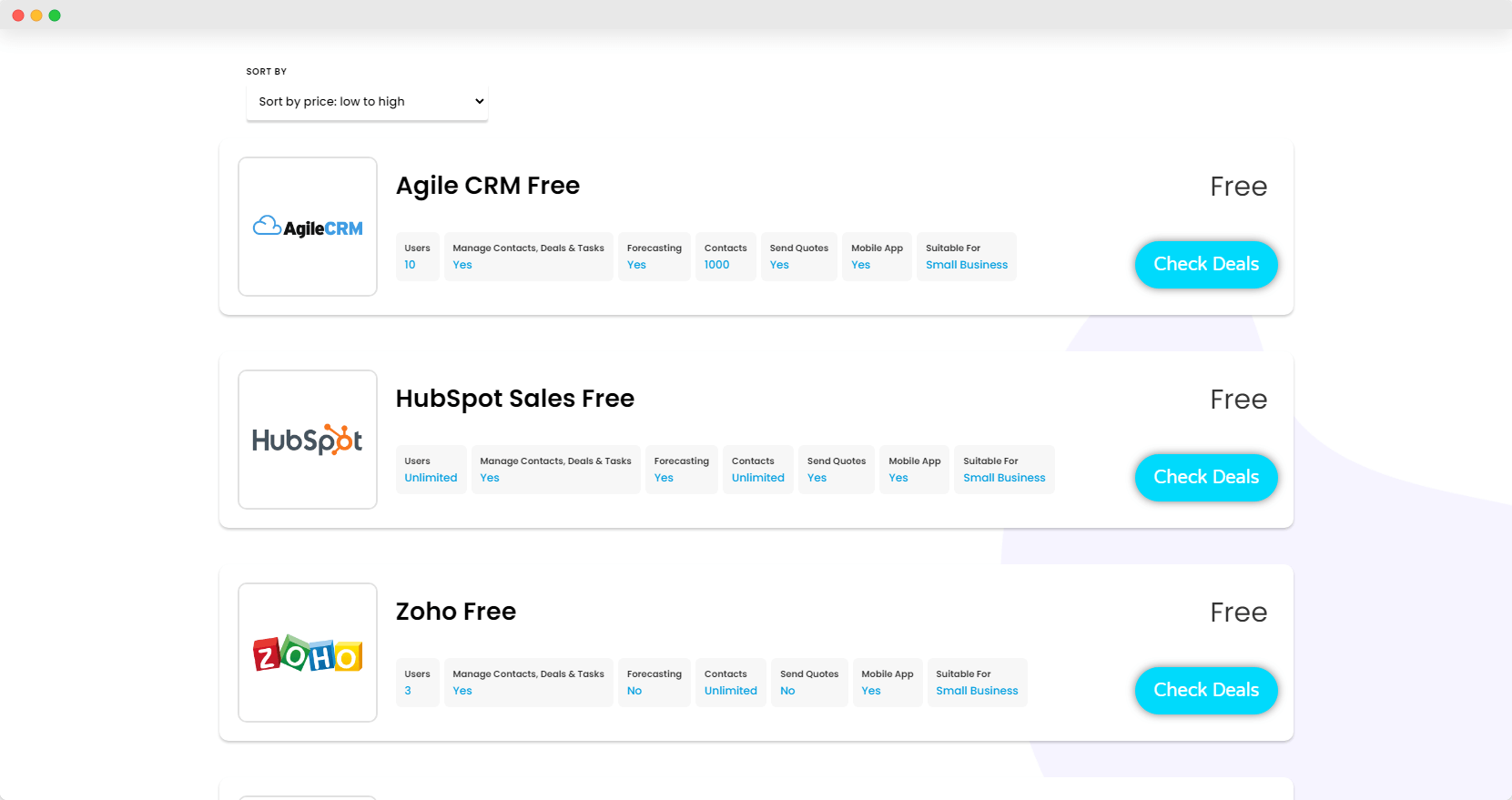
What are CRM Systems?
CRM Systems are a customer relationship management tool your business can use to store customer data, manage and share interactions with your customers and prospects.
The marketing tools that some CRM systems come with support sales management with one simple goal: to improve customer relationships by producing more engaging and personal content to increase sales.
Having CRM systems in place helps you automate sales and marketing processes, track leads, analyse interactions and communicate internally.
By going digital and implementing CRM systems, you can also integrate your cloud accounting software, your business website, and other marketing systems so that every area of your business is connected.
Compare CRM using our free CRM comparison tool belo to find a great deal and start a free trial.

Lead generation & data tools
This allows you to use customer data to find new potential clients and create personas to create effective marketing campaigns.
You can also manage sales leads by making calls, sending emails, and assigning tasks through central CRM systems.
Storing and managing data security has to be done in a safe and legal way. CRM systems provide the perfect facility for this.
Marketing Strategy
CRM systems will help you understand ‘customer journeys’. By tracking your customer life cycles, you can create effective marketing content to target customers and improve your marketing strategy.
Some CRM systems offer features such as landing page templates, marketing plans, blog content ideas and customer personas. Most CRM systems come with tools for communicating with customers.
communication channels
Some CRM systems come with a live chat feature. This tool integrates with your website to create a chatbot. Customers will then be able to conveniently contact your business, ensuring great customer service.
Email marketing tools enable you to create personalised campaigns. You can also track opened emails and automate follow-up emails to increase customer engagement.
Social Media tools
This allows you to connect all your social media accounts such as Instagram, Facebook, Twitter, LinkedIn. Some CRM systems enable you to connect your website and blog so that new content is automatically broadcast.
You can also receive information on the best times to post content based on user engagement, plus the option to schedule content ahead of time for easy social media management.
Take your business digital.
What features do CRM systems have?
To help create great customer relationships and manage your business efficiently, CRM systems have several key features.
Included features vary depending on the CRM systems provider, which is why it’s always best to compare before you make a decision on which to use.
Find the best CRM for your business
Compare CRM Systems
We compare dozens of different CRM Systems to help you make the right choice.
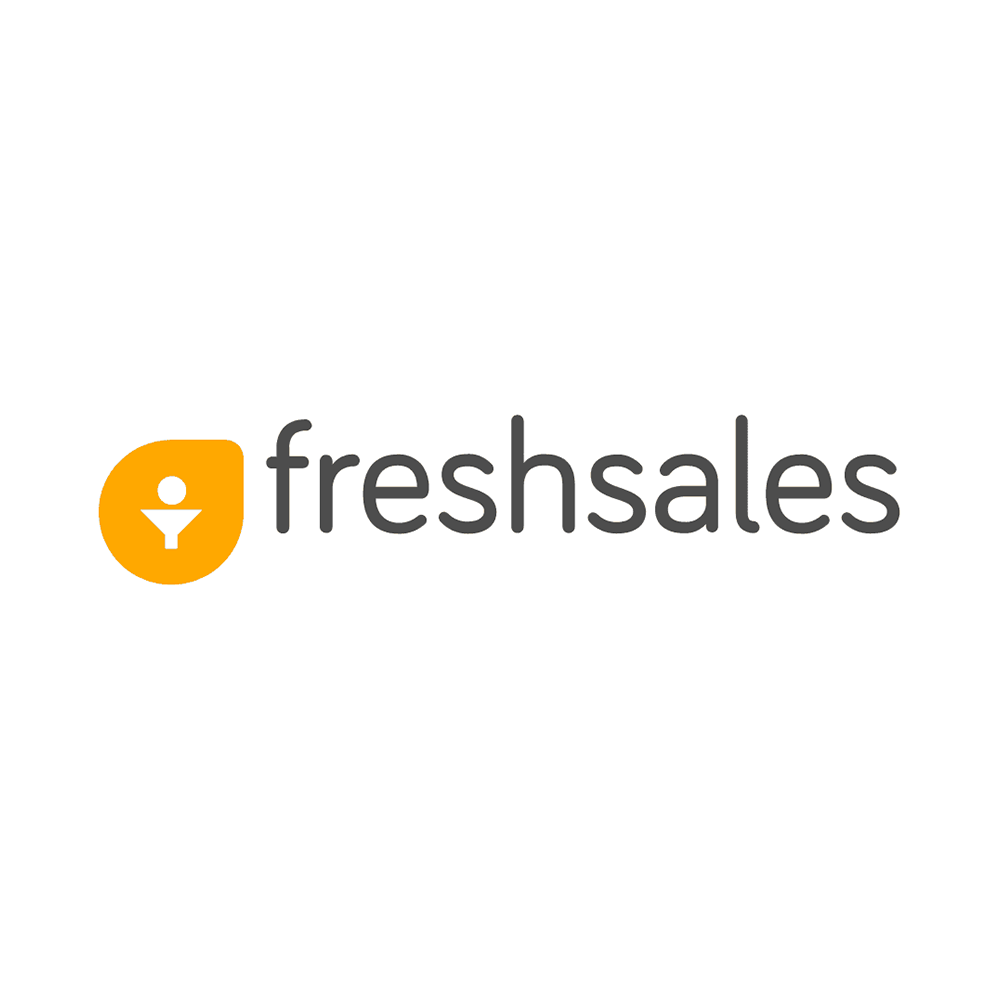
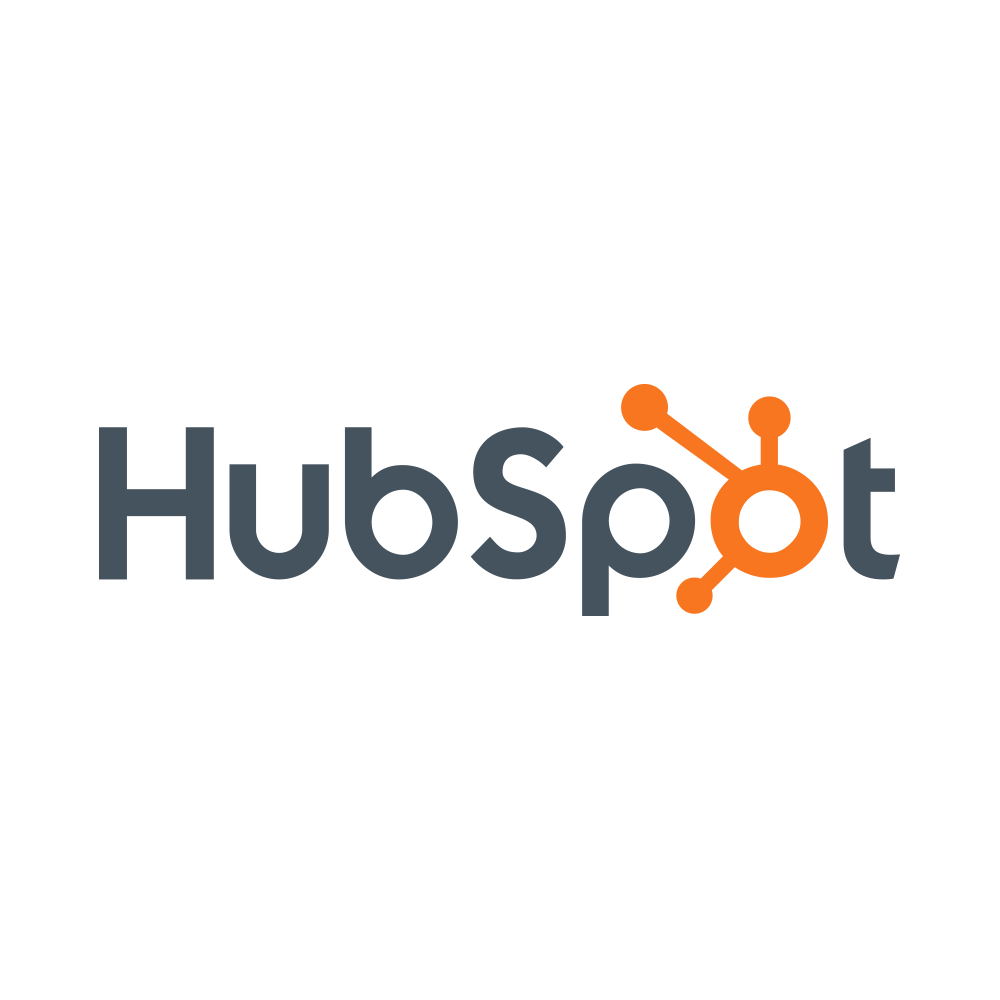

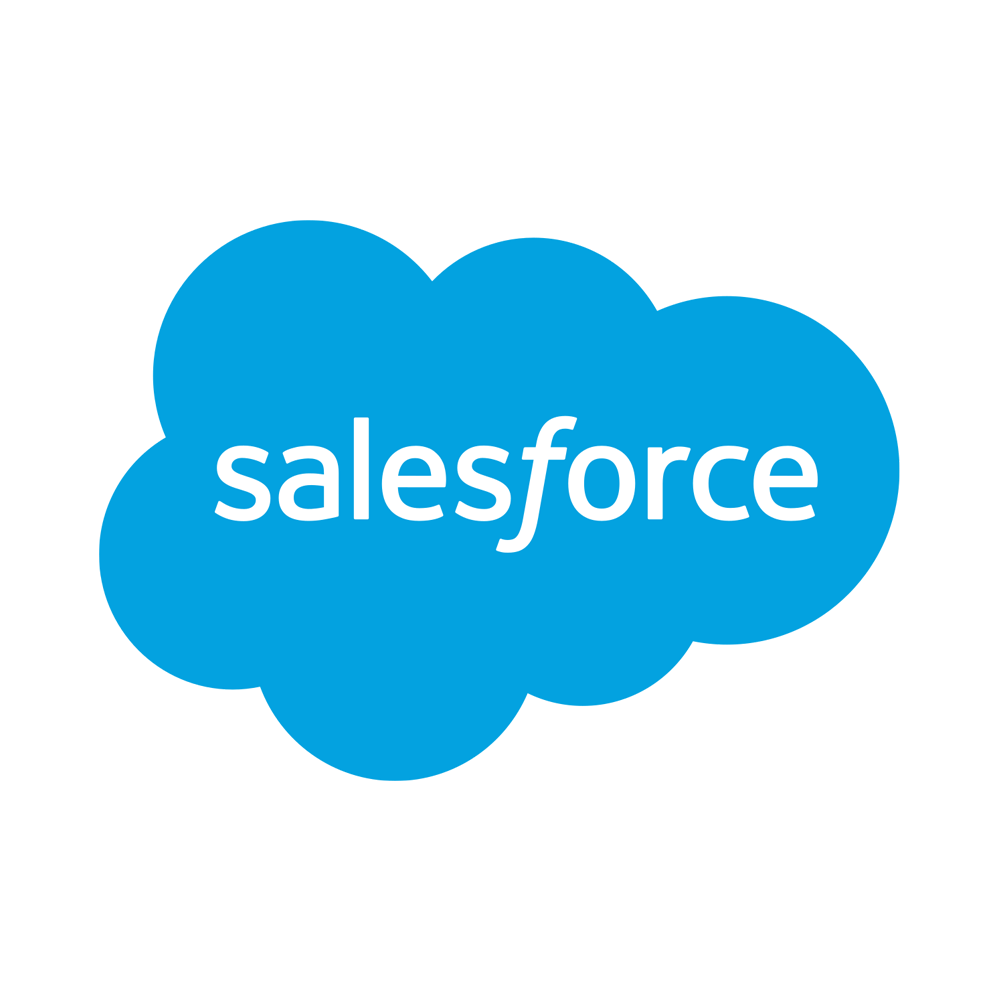


Find what works for your business.
What types of CRM systems are there?
There are different types of CRM systems, each with different capabilities. The 3 different types are; operational, analytical, and collaborative.
You must choose the right one for your business needs to make the most out of the technology.
Operational CRM
Operational CRM systems are focused on managing individual customer interactions, with the goal of converting leads into customers. Small businesses benefit greatly from using operational CRM as it helps you automate and manage marketing, sales and service.
Analytical CRM
Analytical CRM systems are best suited to businesses that want to leverage data to understand how customers operate and improve their approach. It does this by storing data and analysing it for trends and patterns. Through data mining, data warehousing and OLAP tools.
Collaborative CRM
Collaborative CRM systems are best suited to small businesses that want to use CRM systems for communication. This type of CRM focuses on synchronizing different business functions such as sales, marketing and service. It helps to ensure no information gets missed, making it ideal for remote teams.
How to choose
When choosing which type of CRM systems your business should adopt, it’s important to consider what the goal is. Analytical is best suited to businesses that want top leverage data. Operational for more of a sales focused CRM. Collaborative for businesses that want to improve communication and service.
Questions?
CRM Systems FAQs
Here’s some simple, jargon-free answers.
CRM systems help to generate more intimate and personal relationships with your customers, both existing and future. By improving customer experience, and ultimately sales, your business will grow. Freshdesk is great example of a tool for improving customer service.
In terms of existing customers, producing meaningful content can help you retain their business and ensure they stay loyal to your brand.
It also keeps everything, that being previous purchase history, the status of sales orders, and any complaints, in one central location.
For potential customers, using CRM systems can help encourage them to purchase from your business as they believe your views resonate with theirs.
Deciding which sales & CRM systems is best for your business depends on your business goals and requirements.
There are 3 main types of CRM, each best suited to different types of businesses.
Check out our guide to the 10 best CRM for small business to find which platform is best for you.
Operational CRM
Ideal for businesses that need help organising customer information and wish to save time on sales and marketing. Check out Salesmate CRM.
Analytical CRM
Ideal for businesses that need to better understand their customer profiles and create effective and personalised campaigns to improve the business’ sale strategies.
Collaborative CRM
Ideal for businesses that need to improve communication between departments, improve customer service, and retain more existing customers.
CRM systems record all communications, be that emails, telephone calls, website and social media visits, and all other measurable interactions that individuals have with your business.
These people may be existing customers of yours or potential customers.
On top of this, CRM systems also look at business factors, such as news published by the business, new products released, or any other company activity.
With these two sets of data combined, CRM systems can see when customer interactions coincide with specific business activity, allowing you to gain an insight into what this individual likes.
As a business, you can then use this insight to make information that this individual is likely to engage with visible to them, building a more intimate experience for your customers and better chances of them connecting with your brand.
CRM systems is one of the biggest software markets in the world, and the industry is growing rapidly.
There are many different examples of CRM systems, some being:
- HubSpot
- Oracle
- Zoho
- Salesforce
- Sugar CRM
- Monday.com
- Microsoft
- Freshsales
- SAP
- Salesmate
- Pipedrive
- Agile CRM
- Asana
- Many others
Compare CRM systems using our free CRM comparison tool below.
In today’s digital world it’s recommended that every business has some form of CRM systems in place.
This doesn’t need to be expensive. Small businesses can make use of HubSpot’s free CRM to keep track of sales, customer data and send marketing information.
If you’re looking for something more advanced, check our free CRM comparison tool below to help you decide which is best for your business.
If you’re new in business, check out this guide to the best CRM for startups.
There is no definitive answer as to the best 5 CRM systems UK, as each system has different features and capabilities which make it better suited to certain businesses.
In this review of the 5 best CRM for startups, we recommend:
- HubSpot
- Monday.com
- Salesforce
- Zoho
- Freshsales
In order to find the best CRM system for your business, we recommend using our free CRM comparison tool below.
The 3 types of CRM systems are:
- Operational
- Analytical
- Collaborative
Compare CRM using our free CRM comparison tool below!
Your CRM database will be included in with CRM systems.
If you need to store data whilst you’re setting up CRM systems, you should use a secure cloud storage provider, such as these below:
Use our free CRM comparison tool below to compare CRM systems.
Make the right choice for your business
Compare CRM Systems
Check deals to start a free trial
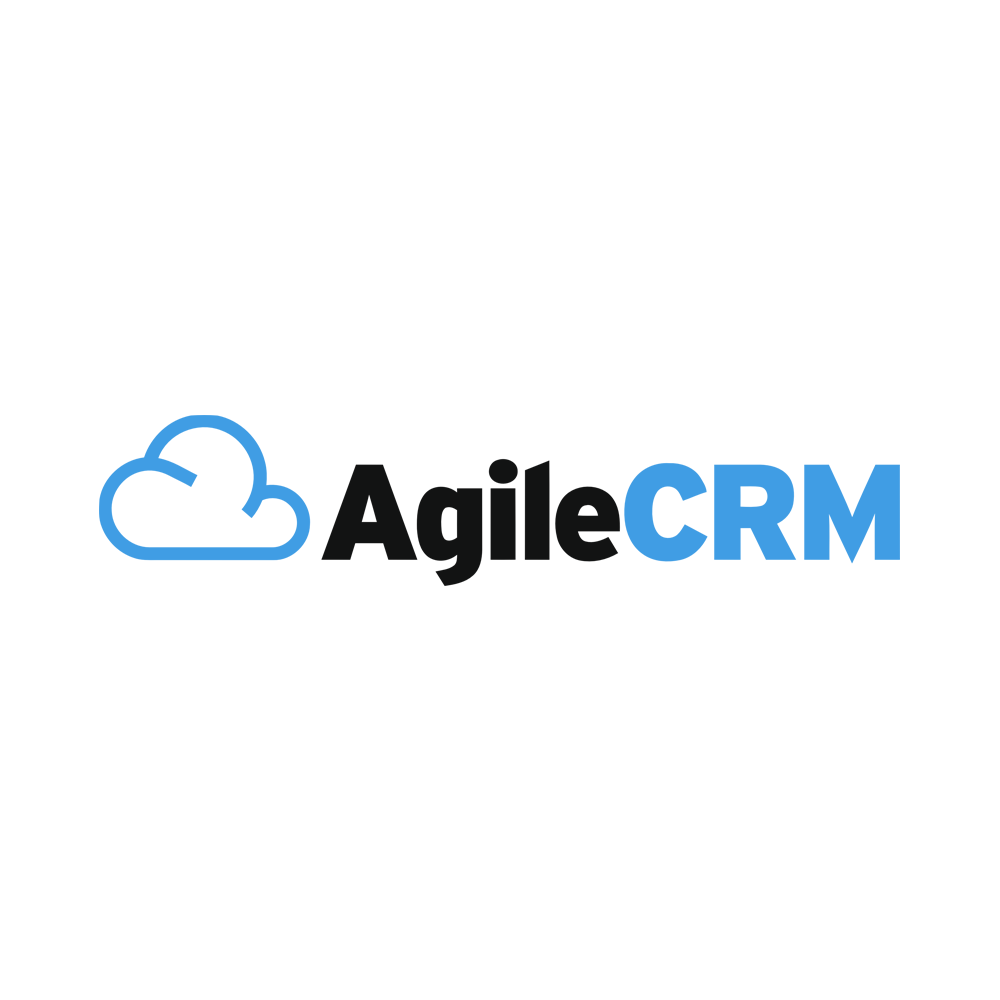
Agile CRM Free
Free
Top 5 CRM Systems UK

Zoho Free
Free
Zoho is an excellent one-stop-shop for those of you looking for a CRM, productivity app and project management system all in one.
Zoho is an excellent one-stop-shop for those of you looking for a CRM, productivity app and project management system all in one.
Pros
- Free trial
- Excellent email marketing features
- Easy to use
- Plenty of integrations
Cons
- You can’t customise your reports
- Free trial is for the Ultimate plan only
User friendly, excellent integrations and well priced. You may find it difficult to beat Zoho in terms of value for money. It’s a great option for businesses looking to manage every aspect of their business on one platform. Users that want more advanced reporting features may be better with Salesforce. Read the full Zoho review.

Salesforce Essentials
£20.00
The market leader in CRM. Better suited to larger businesses with IT expertise.
The market leader in CRM. Better suited to larger businesses with IT expertise.
Pros
- Free trial
- Marketing tools
- Good choice of dashboard
- Powerful features
Cons
- Can become expensive
- Migrating data can be challenging / expensive
- Steep learning curve for new users
- Difficult to leave the Salesforce ecosystem once you’re in
Salesforce is the big name in CRM. Whilst it is expensive and can be challenging to use, for those that are familiar with it, it is a great system. Check out our full Salesforce review for more information.

Freshsales Free
Free
If you’re looking for an easy-to-use CRM that comes with a free plan, we recommend Freshsales.
If you’re looking for an easy-to-use CRM that comes with a free plan, we recommend Freshsales.
Pros
- Free plan
- Very easy to use
- Strong sales management features
Cons
- Not as many integrations
- Paid plans expensive
- Limited analytics
Whilst Freshsales may not have the most advanced analytics or many integrations, those of you that are looking for an easy, sales-focused CRM would do well to choose Freshsales. Read the full Freshsales review.

HubSpot Sales Free
Free
HubSpot is an excellent CRM, offering a free plan which small businesses may find is enough to manage their sales and marketing functions.
HubSpot is an excellent CRM, offering a free plan which small businesses may find is enough to manage their sales and marketing functions.
Pros
- Free CRM plan
- Good integrations
- Easy to use
Cons
- Expensive paid plans
- Other CRMs have more features
HubSpot CRM is viewed as being one of the best CRMs, especially for smaller businesses and startups due to it’s free plan and integrations. It comes with a good selection of features of managing sales and marketing as well as keeping client records safe.
Check out our full HubSpot review to find out more, or start a free trial of HubSpot.
Here’s our comparison review of HubSpot vs Salesforce.

Monday.com Basic
£7.00
Monday.com is an easy to use, simple CRM system, that’s a strong choice for businesses looking to manage projects and tasks, as well as sales.
Monday.com is an easy to use, simple CRM system, that’s a strong choice for businesses looking to manage projects and tasks, as well as sales.
Pros
- Free trial
- Great social media integrations
- Easy to understand price plans
- Easy to use
Cons
- Limited report customization compared to other CRM systems
Monday.com has transformed from being a project management system into a CRM system for businesses. With that in mind, it’s easy to see Monday.com as a strong tool for managing projects and tasks. Whilst Monday.com gives you the basic of CRM functionality, it is perhaps stronger as a tool for managing tasks and productivity. Read the full Monday.com review.



